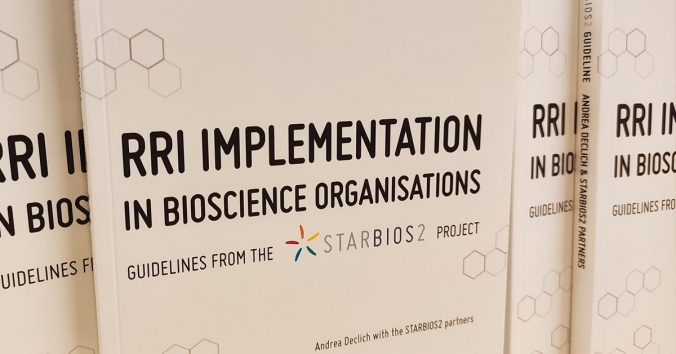Academic research is driven by dissemination of results to peers at conferences and through publication in scientific journals. However, research results belong not only to the research community. They also belong to society. Therefore, results should reach not only your colleagues in the field or the specialists in adjacent fields. They should also reach outside the academy.
Who is out there? A homogeneous public? No, it is not that simple. Communicating research is not two activities: first communicating the science to peers and then telling the popular scientific story to the public. Outside the academy, we find engineers, entrepreneurs, politicians, government officials, teachers, students, research funders, taxpayers, healthcare professionals… We are all out there with our different experiences, functions and skills.
Research communication is therefore a strategically more complicated task than just “reaching the public.” Why do you want to communicate your results; why are they important? Who will find your results important? How do you want to communicate them? When is the best time to communicate? There is not just one task here. You have to think through what the task is in each particular case. For the task varies with the answers to these questions. Only when you can think strategically about the task can you communicate research responsibly.
Josepine Fernow is a skilled and experienced research communications officer at CRB. She works with communication in several research projects, including the Human Brain Project and STARBIOS2. In the latter project, about Responsible Research and Innovation (RRI), she contributes in a new book with arguments for responsibly planned research communication: Achieving impact: some arguments for designing a communications strategy.
Josepine Fernow’s contribution is, in my view, more than a convincing argument. It is an eye-opening text that helps researchers see more clearly their diverse relationships to society, and thereby their responsibilities. The academy is not a rock of knowledge in a sea of ignorant lay people. Society consists of experienced people who, because of what they know, can benefit from your research. It is easier to think strategically about research communication when you survey your relations to a diversified society that is already knowledgeable. Josepine Fernow’s argumentation helps and motivates you to do that.
Josepine Fernow also warns against exaggerating the significance of your results. Bioscience has potential to give us effective treatments for serious diseases, new crops that meet specific demands, and much more. Since we are all potential beneficiaries of such research, as future patients and consumers, we may want to believe the excessively wishful stories that some excessively ambitious researchers want to tell. We participate in a dangerous game of increasingly unrealistic hopes.
The name of this dangerous game is hype. Research hype can make it difficult for you to continue your research in the future, because of eroded trust. It can also make you prone to take unethical shortcuts. The “huge potential benefit” obscures your judgment as a responsible researcher.
In some research fields, it is extra difficult to avoid research hype, as exaggerated hopes seem inscribed in the very language of the field. An example is artificial intelligence (AI), where the use of psychological and neuroscientific vocabulary about machines can create the impression that one has already fulfilled the hopes. Anthropomorphic language can make it sound as if some machines already thought like humans and functioned like brains.
Responsible research communication is as important as difficult. Therefore, these tasks deserve our greatest attention. Read Josepine Fernow’s argumentation for carefully planned communication strategies. It will help you see more clearly your responsibility.
Finally, a reminder for those interested: the STARBIOS2 project organizes its final event via Zoom on Friday, May 29, 2020.

Written by…
Pär Segerdahl, Associate Professor at the Centre for Research Ethics & Bioethics and editor of the Ethics Blog.
Fernow, J. (2019). Note #11: Achieving impact: Some arguments for designing a communications strategy, In A. Declich (Ed.), RRI implementation in bioscience organisations: Guidelines from the STARBIOS2 project, (pp. 177-180). Uppsala University. ISBN: 978-91-506-2811-1
We care about communication







Recent Comments